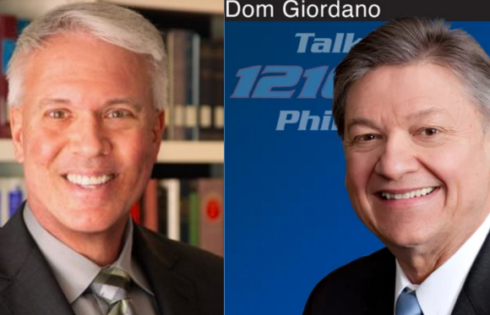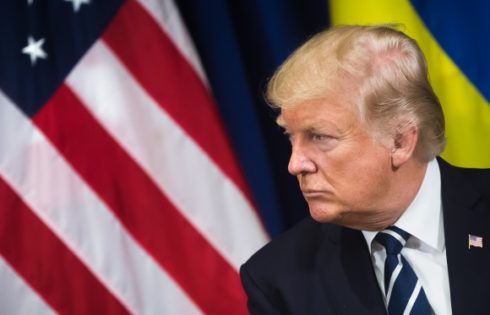
Even as student journalism becomes more insulated from censorship at Wesleyan University, through the creation of an independent “,” the very practice of interviewing and reporting on the West Coast just took a legal hit.
Last week I covered a 9th U.S. Circuit Court of Appeals decision that gave students legal recourse against censorship attempts by public colleges, but First Amendment experts at UCLA and press-freedom groups see a much bigger threat in another part of that decision.
It all boils down to one section in Fresno State University’s harassment policy:
The school can level disciplinary sanctions for conduct that “threatens or endangers the health or safety of any person . . . including physical abuse, threats, intimidation, harassment, or sexual misconduct.”
That may sound pretty narrow – until you read an earlier 9th Circuit decision that laid out what qualifies as “harassment.”
Also banned: wearing a ‘homophobic’ shirt
The Foundation for Individual Rights in Education and Student Press Law Center filed a joint brief in support of conservative student Neil O’Brien, whom FSU punished for questioning two professors from outside their offices while videorecording.
This is how the lower court described O’Brien’s interaction with the professors: “Plaintiff’s attempt at in-your-face interviews with video camera going, and his failure to immediately desist when requested to do so is nothing short of harassment and at least attempted intimidation.”
FIRE and SPLC warned that this “health or safety” provision – codified in state law – was a slippery slope toward punishing not only ordinary students’ political expression when it’s unwanted, but any journalist who attempts to interview an uncooperative public official.
Check out the other violations that surround “health or safety.” So under the 9th Circuit ruling, public masturbation and asking unwanted questions are the same thing.
The 9th Circuit ruled that FSU’s policy was actually narrower than other policies that had been struck down in other appeals courts – and then, as FIRE noted today, the court pointed to another policy it had earlier approved, in Harper v. Poway Unified School District:
In its parenthetical, the court summarizes its ruling in Harper as affirming the constitutionality of discipline meted out to a high school student “who wore [a] homophobic t-shirt because it ‘injure[d] and intimidate[d]’ others.” The court cites Harper here as evidence that it has “recognized the needs of educational institutions to protect their employees and students from potentially harmful conduct.”
Wait – if wearing an offensive T-shirt intimidated someone enough to justify punishment in high school, FIRE asks, “how exactly does that conclusion alleviate First Amendment concerns about the potential reach of a policy that prohibits ‘harassment’ that ‘threatens or endangers the health or safety’ of other university community members?”
Confronting your prof about anti-Trump sentiment could be ‘harassment’
UCLA Law Prof. Eugene Volokh, who wrote the brief filed by FIRE and SPLC, says in a blog post that the 9th Circuit’s interpretation of “harassment” here means that it’s open season on student journalists:
“Asking hostile questions and videotaping” professors — or staff members — through office doorways could be seen as punishable “threaten[ing] or endanger[ing] the health or safety of any person,” at least so long as the journalist refuses to immediately stop when told to do so. And this is so even when there’s no indication that the journalist has been violent or threatening in the past (since the court didn’t rely on any such indication about O’Brien here).
This is a pretty huge chilling effect if students can be punished for asking unwanted questions to anyone on campus, the professor says, laying out this scenario:
“Professor Volokh, aren’t you responsible for the evil Volokh Conspiracy blog post about Donald Trump?” “Go away.” “No, professor Volokh, I insist that you talk to me for my article.” That might well be enough, under the Ninth Circuit’s decision, for a student journalist’s speech to be punishable “threaten[ing] or endanger[ing] the health or safety of any person.”
If you serve on a student newspaper editorial board in California, Oregon, Washington, Alaska, Hawaii, Nevada, Arizona, Idaho or Montana, now is the time to preemptively warn your administration, student government and readers that what they consider “harassment” – your annoying questions – is how the public speaks truth to power.
Here’s one idea for winning over university skeptics that already appeals to their biases:
Imagine a fraternity president filing a “harassment” complaint against a female student reporter for stopping him in an academic building and asking tough questions about a series of alleged sexual assaults at the fraternity house.
Like The College Fix on Facebook / Follow us on Twitter
IMAGE: ostill/Shutterstock
Like The College Fix on Facebook / Follow us on Twitter








Please join the conversation about our stories on Facebook, Twitter, Instagram, Reddit, MeWe, Rumble, Gab, Minds and Gettr.